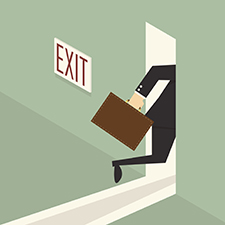 Whether you are ready for a career change or have been offered a new job, leaving your current one can be both exciting and tricky.
Whether you are ready for a career change or have been offered a new job, leaving your current one can be both exciting and tricky.
Sometimes, it’s tempting to get all the negative things off your chest about everything you think is wrong with the company in your resignation letter, but it’s in your best interest to remain professional, polite, and unemotional. With the right wording, you can leave your job on good terms and ensure a positive reputation, so take a look at these tips to help you write your resignation letter.
- Keep letters of resignation positive. Don’t burn your bridges with allegations of mistreatment or insults. By keeping resignation letters positive, you also avoid the risk of libel or defamation, and you increase the likelihood that your boss will give you a future reference.
- Give verbal notification of your resignation to your immediate supervisor first. After the verbal notification, follow up with resignation letters to your boss, other managers, and the human resources department.
- Keep it simple. Although you’ve probably shared your reasons for leaving with your boss, you don’t have to share them in your letter. Just simply state the position you are resigning from and the date of your last day.
- Don’t forget gratitude. It’s always a good idea to thank the company for the job and the opportunities you were given. Add a few things you enjoyed about the job or a few successes you achieved. Remember – you want to leave a positive impression.
- Offer to help with transitions. Another way to leave with a glowing reputation is to offer to ease the challenges of your leaving. Don’t promise anything you don’t want to do, but add that you’d be willing to help with the transition and a smooth wrap-up of all your duties.
- End with a smile. At the conclusion of your letter, thank the organization again for the opportunities you were given and wish them luck and success.
Here’s a good example of a basic resignation letter that covers all our tips.
Dear (Boss),
Please accept my official notice of resignation. I am grateful for all the work we have been able to accomplish at (company name). However, I (have accepted another position) (have decided to move forward with my career) and plan to leave in two weeks. My final date will be (date).
I will work with you to wrap up as much as possible in the next two weeks to make my resignation as smooth as it can be. If you have any suggestions on how we can best accomplish that goal, please let me know.
I appreciate all the opportunities this position has granted me, and I wish (company name) success in the future.
Sincerely,
(Your name)
Have you ever written a resignation letter? If so, share your experiences with us in the comments section below.
Movin’ On Up is brought to you by Express Employment Professionals.



